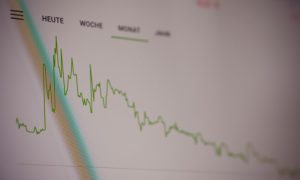In its second quarter of downturn, the U.S. economy's gross domestic product (GDP) is declining faster than experts once thought.
The Bureau of Economic Analysis (BEA) confirmed that the economy is shrinking faster than experts initially predicted. According to the BEA, the real GDP declined 1.6% in the first quarter, which was higher than their original estimate of 1.4%. The decrease is a stark change from the last quarter of 2021, in which the economy grew 6.9% from the prior quarter. The advanced estimate for second-quarter GDP performance is scheduled for July 28, 2022.
Ultimately, the BEA says that this recent decline can be attributed to the omicron variant impacting consumer spending. Russia's invasion of Ukraine and disruptions to the global supply chain also resulted in economic turbulence felt by more than just the U.S. economy. The price of oil rising has also caused consumer spending to fall, and due to inflation, households are less likely to make purchases outside of their necessary commodities.
A recession is typically defined as two consecutive quarters of substantial GDP decline, but Alicia Wallace of CNN Business says this isn't "a hard and fast rule." Instead, Wallace says, the BEA, which determines whether or not recessions are occurring, is more likely to claim that the economy is in recession if there's a "significant decline" in economic activity across the entire economy. Big banks like Wells Fargo seem to be preparing for a mild recession in the second quarter of 2023, as weakness in output growth can be a troubling omen. However, economists like Scott Hoyt, a Senior Economist at Moody's Analytics, hope that strong consumer and business balance sheets will keep households afloat if there is a recession. He adds that job growth and investments are also holding fast, which is a promising sign.




















